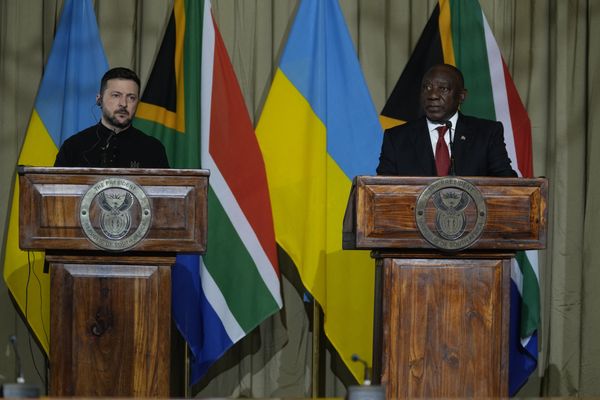
Noel Clarke has suffered a blow in his legal action against the Guardian after a high court judge rejected his attempt to strike out the publisher’s defences in the case.
In central London on Wednesday the actor and producer sought to prevent the Guardian relying on the defences of truth and public interest at a trial for defamation and data protection, but Mrs Justice Steyn rejected the application after hearing that it was “absolutely hopeless”.
Gavin Millar KC, appearing for the Guardian, told the court Clarke was using Wednesday’s hearing to make “unfounded and unsubstantiated allegations of a wild nature”.
Clarke, best known for his Kidulthood film trilogy, is suing the Guardian over articles published in 2021 and 2022 after an investigation that set out multiple claims of misconduct against him.
Clarke’s legal team had sought to get the defences struck out, alleging that Guardian journalists had deleted evidence and also fabricated evidence.
However, Philip Williams, a barrister acting for Clarke, admitted that he could not point to any document that had been fabricated by the Guardian.
Millar told the court: “It is our position that there is no worthwhile evidence to support these very serious allegations of deleting and falsifying of evidence they appear to have made in order to launder into the public domain damaging allegations against Guardian journalists which couldn’t be justified if made outside of court.”
He said Clarke was using privilege for court proceedings as cover to air allegations that would see him sued for libel if said outside court.
In another setback for Clarke, the judge also rejected an application by the claimant for the Guardian’s head of investigations, Paul Lewis, to be cross-examined before the trial, which is scheduled to begin in March.
Millar said the claimant was seeking “pieces of mud that they can throw at Mr Lewis and the Guardian” and Clarke was “using his counsel to make inappropriate, unsourced … allegations … so the press can pick up on them and report things he is clearly not willing to say outside of court”.
The Guardian’s first article about Clarke reported allegations from 20 women who made claims of sexual misconduct.
On Wednesday, after Williams suggested some of the complainants “don’t exist”, Millar described this as a “wild claim” and “another example of him using this court to make unfounded and unsubstantiated allegations of a wild nature”.
Another barrister for Clarke, Daniel Jeremy, later clarified that his legal team were not claiming that none of the complainants existed.
Clarke has denied any sexual misconduct or wrongdoing. He accepted he once made inappropriate comments about one woman, for which he later apologised. He said in November 2023: “I have always disputed the content of the eight Guardian articles.”
A Guardian spokesperson said: “Today, the judge rejected Noel Clarke’s application to strike out our defence. Lawyers for the Guardian told the court there is not one scintilla of evidence that journalists ‘fabricated’ evidence – a very serious claim made to launder into the public domain allegations that couldn’t have been made outside court.”
“Our reporting on Noel Clarke in 2021 was based on the accounts of 20 brave women. After we published our first article, more women came forward.
“At trial, 32 witnesses are set to testify against Mr Clarke under oath. We look forward to a judge hearing the evidence.”
The judge said she would deliver her reasons for rejecting the application at a later date.







